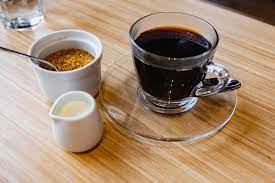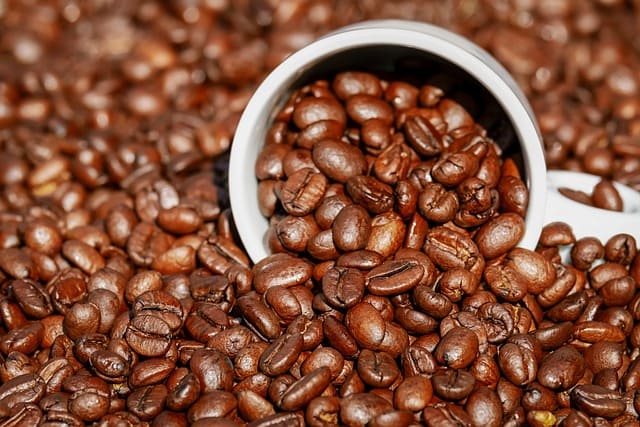For many, the day doesn’t start until they’ve had that first sip of coffee. But aside from its ability to shake off the morning grogginess, coffee, particularly black coffee, has been associated with fat burning and weight loss. Let’s dive does drinking black coffee burn fat ? into the science behind this claim and see if adding black coffee to your diet can actually help you shed those extra pounds.
The Metabolic Magic of Caffeine
Black coffee is known for its high caffeine content. Caffeine is a central nervous system stimulant that increases your metabolic rate. In simpler terms, it can boost the number of calories your body burns at rest. This process is known as thermogenesis, and it plays a crucial role in how your body manages weight.
Appetite Suppression
Drinking coffee has been found to suppress appetite in some individuals, leading to a decrease in overall calorie intake. This can be particularly helpful for those looking to reduce their portion sizes or snack less throughout the day. This effect may vary from person to person.
Enhanced Physical Performance
Caffeine is also known to enhance physical performance by increasing adrenaline levels in the blood, which prepares your body for intense physical exertion. It also breaks down body fat, making free fatty acids available as fuel. Therefore, having a cup of black coffee before working out can potentially help you exercise more vigorously and burn more fat in the process.
- Increased Adrenaline Levels: Caffeine stimulates the production of adrenaline, the ‘fight or flight’ hormone. This can lead to increased heart rate and energy levels, preparing your body for enhanced physical exertion.
- Improved Concentration: Black coffee can improve mental focus and alertness. This heightened state of concentration can help athletes and gym-goers stay motivated and focused on their physical performance.
- Fatigue Delay: Caffeine consumption can help delay the onset of muscle fatigue by influencing the way your body uses its primary energy sources. This may improve endurance and allow for longer and more effective workouts.
- Improved Muscle Contractions: Caffeine can enhance neuromuscular coordination, which means it can improve the efficiency of the signal transmission between your brain and muscles, resulting in better muscle contractions and strength output.
- Glycogen Sparing: During moderate to high-intensity exercise, caffeine may promote the use of fat stores for energy over glycogen (stored carbohydrates). This ‘glycogen sparing’ effect can preserve muscle glycogen for later stages of exercise.
- Pain Reduction: Some studies suggest that caffeine may have an analgesic effect, reducing the perception of pain during exercise. This could potentially allow individuals to increase their workout intensity and duration.
- Improved Recovery: Post-workout coffee consumption, particularly when combined with carbohydrates, has been suggested to help replenish muscle glycogen more rapidly, which might enhance recovery after strenuous exercise.
- Increased Thermogenesis: The thermogenic effect of coffee can lead to increased heat production in the body, which not only helps burn calories but may also improve exercise performance in a cooler environment.
- Ergogenic Aid: Caffeine is classified as an ergogenic aid, which means it helps enhance physical performance. For this reason, it is one of the most commonly used supplements in the athletic and fitness communities.
- Mood Elevation: The stimulatory effects of caffeine can also elevate mood and decrease the perception of effort during physical activity, potentially making exercise feel less challenging.
Nutritional Value

Black coffee is low in calories, providing approximately 2 calories per 8-ounce cup. It contains no fat, cholesterol, or sugar and only trace amounts of carbohydrates and protein. Given its minimal calorie content, it’s a beverage that can easily fit into a weight loss diet.
Here’s a brief overview of the nutritional value of black coffee:
| Nutrient | Amount per 8 oz cup (240 ml) |
|---|---|
| Calories | 2 |
| Total Fat | 0g |
| Saturated Fat | 0g |
| Trans Fat | 0g |
| Cholesterol | 0mg |
| Sodium | 5mg |
| Total Carbohydrates | 0g |
| Dietary Fiber | 0g |
| Sugars | 0g |
| Protein | 0.3g |
| Caffeine | 95mg |
It should be noted that black coffee is a low-calorie beverage with no significant amounts of macronutrients like fats, carbohydrates, or protein. The main active component is caffeine, and the drink also contains small amounts of certain minerals and antioxidants.
It’s Not a Miracle Drink
While black coffee has properties that may support weight loss, it’s not a silver bullet. Drinking coffee alone without a balanced diet or regular exercise is unlikely to lead to significant weight loss. Additionally, some people may add sugar, cream, or syrups to their coffee, which can negate any potential benefits by significantly increasing the calorie content.
Potential Downsides
Too much caffeine can lead to negative side effects such as anxiety, sleep disturbances, heart palpitations, and increased blood pressure. It’s generally recommended to limit coffee intake to about 3-4 cups per day.
Burning fat natural way
Burning fat naturally involves a combination of dietary habits, physical activity, and lifestyle adjustments. Here are several effective strategies to help you burn fat in a natural way:

Balanced Diet: Focus on a diet rich in whole foods, such as vegetables, fruits, lean proteins, whole grains, and healthy fats. Reduce the intake of processed foods, sugars, and high-calorie items.
Portion Control: Be mindful of portion sizes to avoid consuming more calories than you need. Eating smaller, more frequent meals can help control appetite and maintain steady energy levels.
Regular Exercise: Incorporate a mix of cardiovascular exercises (like running, swimming, cycling) to burn calories and strength training to build muscle, which can increase your resting metabolic rate.
Stay Hydrated: Drinking enough water is essential for your metabolism to function optimally. Sometimes thirst can be mistaken for hunger, so staying hydrated might also help you avoid unnecessary snacking.
Get Enough Sleep: Quality sleep is crucial for weight management. Lack of sleep can disrupt hormone levels that regulate appetite and hunger, leading to increased calorie intake.
Reduce Stress: Chronic stress can lead to an increase in the hormone cortisol, which has been linked to higher body fat levels. Engage in stress-reducing activities like meditation, deep breathing exercises, or yoga.
Increase Fiber Intake: High-fiber foods can help you feel full for longer and may reduce the number of calories your body absorbs from other foods.
Cut Down on Alcohol: Alcohol can be high in calories and may decrease the amount of fat your body burns for energy.
Eat Healthy Fats: Incorporate sources of healthy fats like avocados, nuts, seeds, and olive oil, which can help keep you satiated and support a healthy metabolism.
Use Natural Metabolism Boosters: Green tea and spicy foods contain natural compounds that can slightly increase your metabolism.
Stay Active Throughout the Day: Outside of exercise, try to be more active throughout the day by taking the stairs, walking or cycling instead of driving, and standing up periodically if you have a desk job.
Track Your Progress: Keep a food diary or use a fitness app to monitor your diet and exercise habits. This can help you stay accountable and make informed adjustments to your fat loss plan.
Remember that everyone’s body is different and responds differently to dietary and lifestyle changes. It’s important to find a sustainable routine that works for you and to make gradual changes that you can maintain long-term for effective fat loss and overall health improvement.
Final Thoughts
Including black coffee in a healthy, balanced diet can potentially help you burn fat due to its metabolism-boosting and appetite-suppressing properties. It should be consumed in moderation and accompanied by proper nutrition and exercise. No single food or drink can provide miraculous weight-loss results; it’s always about the bigger picture of a healthy lifestyle.
Q: What are the benefits of black coffee for weight loss?
A: Black coffee can help in weight loss as it contains minimal calories and can also help in burning fat, especially when consumed without added sugars or cream.
Q: How much black coffee should I drink to lose weight?
A: It is suggested that consuming four cups of black coffee a day can help with weight loss by promoting fat burning.
Q: Are green coffee beans effective for weight loss?
A: Green coffee beans, when consumed as a supplement, have shown potential in promoting weight loss due to their high content of chlorogenic acid.


Leave a Reply